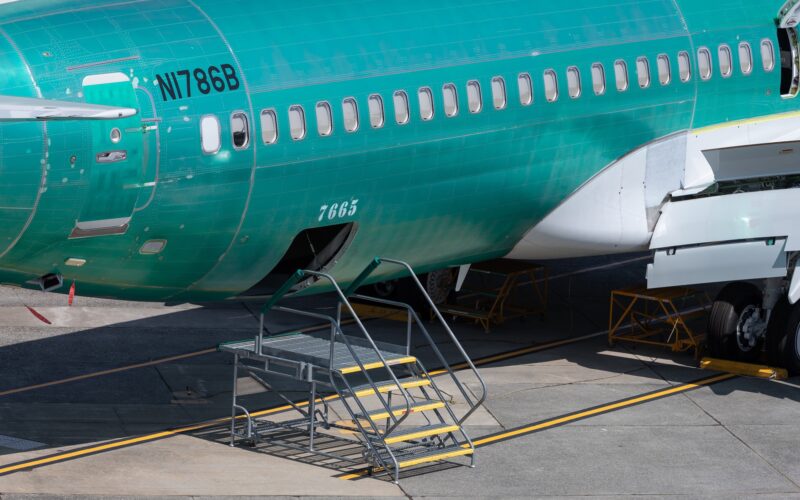New Manufacturing Issue Impacts Boeing 737 Max and 737 NextGeneration (NG) Military Derivative

A recent manufacturing quality concern has surfaced, impacting both the Boeing 737 MAX and the military variant 737 NextGeneration (NG) – the P-8 Poseidon. This development involves the Tier 1 supplier for Boeing, Spirit AeroSystems, confirming the presence of a manufacturing issue related to the aft pressure bulkhead’s elongated fastener holes on the 737 fuselages it provides to the aircraft manufacturer from its Wichita, Kansas facility in the United States (US).
Spirit AeroSystems shared that only a portion of the units are affected due to the multiple suppliers used for the aft pressure bulkhead. The company assures the ongoing delivery of fuselages to Boeing while also highlighting the changes implemented in its manufacturing process to address this issue. Collaboration with Boeing is emphasized to rectify any affected units within the production system and conduct necessary rework.
In terms of its delivery range, Spirit AeroSystems remains confident that the problem with the fastener holes will not significantly impact its unit deliveries. Boeing has assessed the situation and determined that there are no immediate safety of flight concerns for the 737 fleet. The in-service fleet is deemed safe to continue operations.
The concern was initially reported by The Air Current, which revealed instances of misaligned and duplicated holes in some fuselages. This marks the second manufacturing challenge affecting the Boeing 737 MAX and P-8 Poseidon.
An earlier issue, identified in April 2023, involved a non-standard manufacturing process employed in joining the aft fuselage and vertical tail fittings of certain 737 MAX and P-8 Poseidon fuselages. It’s important to note that the 737 MAX 9 remained unaffected by this problem.
During Boeing’s Annual Shareholders Meeting, the company’s President and CEO, David Calhoun, acknowledged the impact, indicating a removal of approximately 9,000 seats from customer schedules for the summer season.
In their Q2 2023 results presentation, Boeing’s CFO and Executive Vice President of Finance, Brian West, shared the company’s response. They resumed deliveries of reworked 737s and initiated the production of new aircraft meeting manufacturer specifications. Plans include a transition to 38 aircraft per month, eventually targeting 50 per month by the 2025-2026 timeframe. The primary focus remains on stabilizing the supply chain, with West acknowledging the need for time to consistently achieve the target of 38 aircraft per month.
Amid these developments, Boeing is set to deliver between 400 and 450 aircraft in the year 2023.
